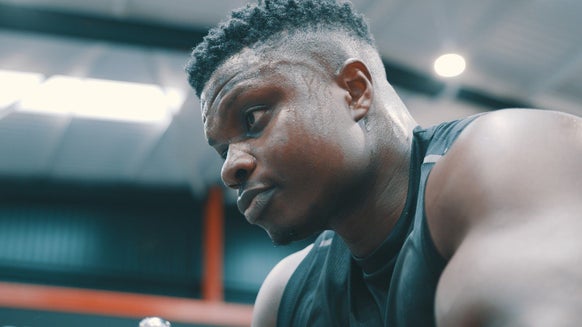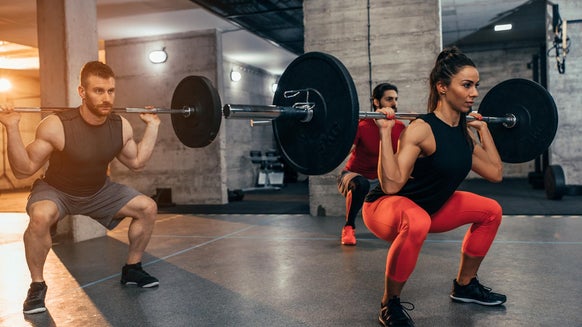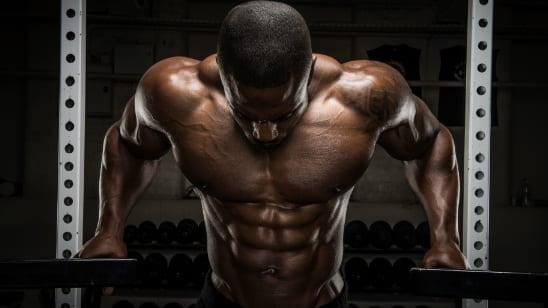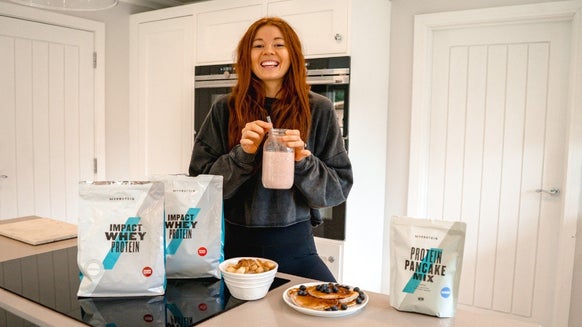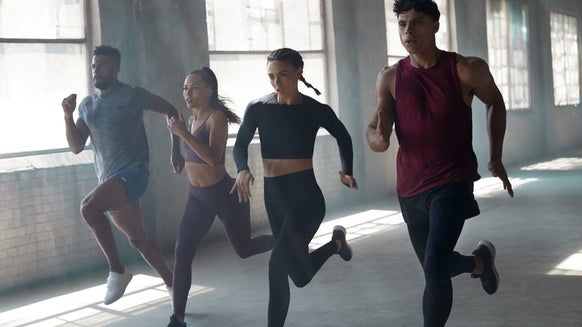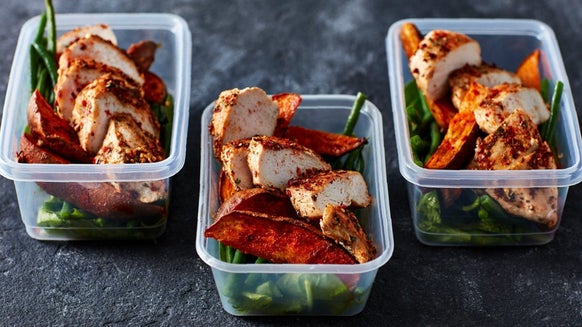
When it comes to eating before swimming, it seems that a lot of us have been fed a lie. You’ve probably been told at some point in your life that you shouldn’t take the plunge until at least thirty minutes after you’ve had food, in case you get cramps, right? Wrong.
There’s actually no evidence to suggest that exercising after eating will give you cramps, although it may be uncomfortable and possibly even make you feel slightly nauseous if you still have half-digested food in your stomach, as blood flow is redirected to your muscles.
So, whilst we aren’t suggesting you have a full three-course meal right before you’re about to strip off, there’s no need for a blanket ban on eating before swimming. Like with every other physical activity, to get the most out of your body, you need to think about what you’re putting into it.
Whether you’re already a regular visitor to the lanes, or only just considering diving into the deep end — these are our best supplements to power your performance in the pool.
Supplements To Have Before Swimming
Instant Oats
Swimming uses a lot of energy — so you need to start with plenty of fuel in the tank. Studies have shown that swimmers need carbs… and lots of them.1,2 Research done with twelve highly trained male swimmers even found that some experienced chronic muscular fatigue as a result of not having enough carbohydrates to match the energy demands of heavy training.3
Our Instant Oats are a perfect, fuss-free solution to packing them in — with 62g of carbs per serving. They’re milled Scottish oats in an ultra-fine powder, so can be mixed with water or milk for porridge, or just as easily added to your shakes and smoothies.
Instant Oats are the ideal breakfast for eating before swimming for convenience. Plus, they’re low in sugar, high in fibre, and have 11g of protein per serving too, which helps to grow and maintain muscle mass — just what you need to power your butterfly stroke.
Creatine
Creatine is another tried and tested supplement that’s been proven to increase physical performance in successive bursts of short-term, high-intensity exercise.7 In simple terms, this is because creatine is a chemical compound that supplies the muscles with energy in the form of ATP, which is used rapidly during exercise. More creatine = more energy = more power for you!
Swimming is a sport that requires lots of power — you have to push your body against water to move forward, and you can feel the resistance of it pushing back. Because creatine fuels anaerobic exercise, it is the most beneficial for sprinters. It is less likely to be beneficial for distance swimmers or long aerobic swim sessions.
A study carried out with 18 male and female junior competitive swimmers found that the group who had been given creatine over the course of nine days of training were swimming significantly faster, with a significantly decreased swim time in their 100m sprints, compared to the group given a placebo.8
Supplements To Have After Swimming
Impact Whey Protein
Recover from a gruelling swim with the highest-quality protein shake. With 21g of protein and 4.5g of BCAAs per serving, you're setting up your muscles to come back stronger. Coming in a variety of flavours, there's sure to be one to fit your taste and every mood.
Want to get more out of your shake? Mix with Instant Oats to top up those glycogen stores and energy levels post-workout.
High-Protein Bar
If you're on the go straight after swimming, then a snack bar with awesome nutritionals is what you need to get you recovering well. The High-Protein Bar boasts 30g of fast- and slow-release proteins making it the perfect bar to help you grow and maintain muscle.
If that's not enough, it also contains 23g of carbohydrate to top up those glycogen stores after a workout to keep your energy levels up. It's also low in sugar and high in fibre — what more could you want from a post-swim snack?
Take Home Message
Whether you’re looking to improve your stroke power with creatine, or speed up your recovery with a carb-fuelled snack — with these top supplements for swimming you’ll be in the fast lane before you know it.
FAQ
What should I have before swimming?
We recommend taking our instant oats for a boost of carbohydrates, caffeine pro to delay fatigue, and creatine in order to increase short burst power.
What should I take whilst swimming?
Whilst swimming we recommend a carbohydrate and electrolyte gel such as our Energy Elite in order to replenish essential salts lost whilst sweating.
What should I have after swimming?
After training we’d recommend a mix of carbohydrates and protein for muscle recovery,such as our Energy Elite Bar or Recovery XS shake. Both loaded with protein and carbohydrates to ensure muscle replenishment.

- Shaw, G., Boyd, K. T., Burke, L. M., & Koivisto, A. (2014). Nutrition for swimming. International journal of sport nutrition and exercise metabolism, 24(4), 360-372.
- Berning, J. R., Troup, J. P., VanHandel, P. J., Daniels, J., & Daniels, N. (1991). The Nutritional Habits of Young Adolescent Swimmers. International Journal of Sport Nutrition, 1(3), 240-248.
- Costill, D. L., Flynn, M. G., Kirwan, J. P., Houmard, J. A., Mitchell, J. B., Thomas, R., & Han Park, S. (1988). Effects of repeated days of intensified training on muscle glycogen and swimming performance. Medicine & Science in Sports & Exercise, 20(3), 249-254.
- Graham, T., Rush, J. and Soeren, M. (1994). Caffeine and Exercise: Metabolism and Performance. Canadian Journal of Applied Physiology, 19(2), pp. 111-138.
- Graham, T. (2001). Caffeine and Exercise. Sports Medicine, [online] 31(11), pp.785-807.
- Lara, B., Ruiz-Vicente, D., Areces, F., Abián-Vicén, J., Salinero, J. J., Gonzalez-Millán, C., … Del Coso, J. (2015). Acute consumption of a caffeinated energy drink enhances aspects of performance in sprint swimmers. British Journal of Nutrition, 114(06), 908-914.
- Volek, J. S., Kraemer, W. J., Bush, J. A., Boetes, M., Incledon, T., Clark, K. L., & Lynch, J. M. (1997). Creatine supplementation enhances muscular performance during high-intensity resistance exercise. Journal of the American Dietetic Association, 97(7), 765-770.
- Grindstaff, P. D., R. B. Kreider, R. Bishop, et al. Effects of creatine supplementation on repetitive sprint performance and body composition in competitive swimmers. Int. J. Sport Nutr.7:330-346, 1997.
- Magnesium contributes to electrolyte balance. Calcium contributes to normal muscle function and neurotransmission. Potassium contributes to normal muscle function and normal function of the nervous system.
- Carbohydrates contribute to the recovery of normal muscle function after highly intensive and/or long lasting physical exercise leading to muscle fatigue and the depletion of glycogen stores in skeletal muscle. The beneficial effect is obtained with the consumption of carbohydrates, from all sources, at a total intake of 4 g per kg body weight, at doses, within the first 4 hours and no later than 6 hours, following highly intensive and/or long-lasting physical exercise leading to muscle fatigue and the depletion of glycogen stores in skeletal muscle.
- Ivy, J. L., Goforth Jr, H. W., Damon, B. M., McCauley, T. R., Parsons, E. C., & Price, T. B. (2002). Early postexercise muscle glycogen recovery is enhanced with a carbohydrate-protein supplement. Journal of Applied Physiology, 93(4), 1337-1344.
- Anthony, J. C., Anthony, T. G., & Layman, D. K. (1999). Leucine supplementation enhances skeletal muscle recovery in rats following exercise. The Journal of nutrition, 129(6), 1102-1106.
- Higashiguchi, T., Hasselgren, P. O., Wagner, K., & Fischer, J. E. (1993). Effect of glutamine on protein synthesis in isolated intestinal epithelial cells.Journal of Parenteral and Enteral Nutrition, 17(4), 307-314.
- Dekkers, J. C., van Doornen, L. J., & Kemper, H. C. (1996). The role of antioxidant vitamins and enzymes in the prevention of exercise-induced muscle damage. Sports medicine, 21(3), 213-238.

